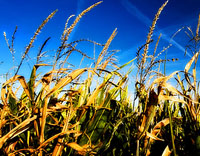
Articles by Laura Carlsen


Behind Latin America’s Food Crisis
Even a year ago, few people would have predicted that a global food crisis would make headlines as one of the major concerns for the future of the world. Yes, critics of agrofuels warned that food shortages and price hikes would result from the headlong rush to divert land from food to fuel production. And climate change experts predicted that global warming would hit small farmers-who even in today's world of industrialized agribusiness still produce much of what we eat-the hardest. Agricultural economists alerted the world to the dangers of leaving the food supply to a highly concentrated international market.

Bad Blood on the Border
Guillermo Martinez was only 20 years old when he was shot in the back at close range by an agent of the U.S. Border Patrol in the state of California on December 30, 2005. Scores of migrants have been shot by U.S. immigration enforcement officers. Most fail to make the headlines. But Martinez's death comes at the same time as a series of measures to further criminalize migrants-measures that are likely to increase the chances that more young men and women lose their lives on what has become the world's most contradictory border.

Deciphering the Language of Globalization
The Hong Kong meeting of the WTO has amply illustrated how difficult it is to arrive at a consensus about the rules of free trade. The fact that none of the major players has been willing to budge-to offer what in negotiating parlance is known as "deliverables"-is just one of the problems. What's increasingly apparent, though, is that the WTO, and indeed the entire concept of free trade globalization, has a communication problem. Most of the texts being negotiated are unintelligible to the untrained ear, which is to say to any normal person.
